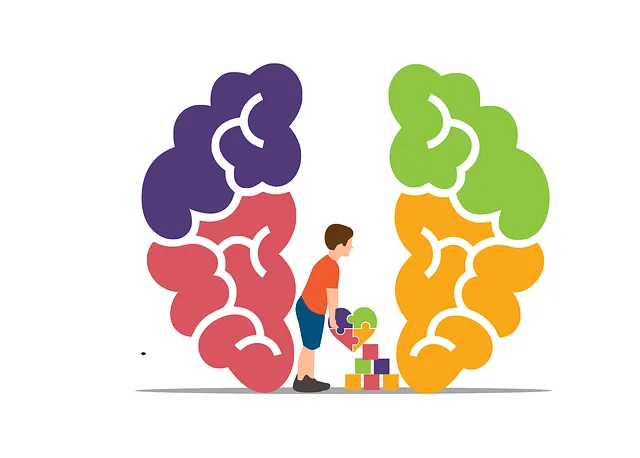Kaiser, a leading healthcare provider in Centennial with comprehensive mental health services, prioritizes cultural competency training to bridge gaps between diverse communities and healthcare providers. Their holistic approach integrates multidisciplinary teams and community outreach programs for optimal patient care. Through targeted training on cultural differences, conflict resolution, and emotional well-being promotion, Kaiser enhances communication, trust, and job satisfaction while addressing cultural barriers in inpatient mental health facilities, making their services tailored to the complex needs of the local community.
“In today’s diverse healthcare landscape, cultural competency among providers is no longer an option but a necessity. This article explores the critical role of cultural competency training in modern medicine, highlighting a comprehensive case study of Kaiser’s inpatient mental health services in Centennial. We delve into the impact of such programs on patient outcomes and provider satisfaction, offering valuable insights for healthcare organizations aiming to improve their cultural competence. Additionally, effective implementation strategies are discussed to enhance these initiatives.”
- Understanding Cultural Competency in Healthcare: A Necessity in Modern Medicine
- Kaiser's Approach to Inpatient Mental Health Services: A Comprehensive Look
- The Impact of Cultural Competency Training on Patient Outcomes and Provider Satisfaction
- Strategies for Effective Implementation and Continuous Improvement of Cultural Competency Programs
Understanding Cultural Competency in Healthcare: A Necessity in Modern Medicine

In today’s diverse healthcare landscape, cultural competency is no longer an optional consideration; it’s a necessity. This concept involves understanding and respecting different cultures, beliefs, and values to deliver high-quality care to patients from varied backgrounds. The Kaiser network, known for its extensive healthcare services, including inpatient mental health facilities in Centennial, recognizes this need. By incorporating cultural competency training into their practices, they aim to bridge the gap between diverse patient populations and healthcare providers.
The Stress Management Workshops Organization plays a pivotal role in fostering this competency by offering resources and programs that focus on mental wellness and emotional healing processes. These initiatives ensure that healthcare providers are equipped to handle the unique needs of patients from different cultures, thereby improving patient outcomes and building stronger relationships within the medical community. This approach aligns with the global shift towards inclusive healthcare, where every individual receives care tailored to their cultural context.
Kaiser's Approach to Inpatient Mental Health Services: A Comprehensive Look

Kaiser, a renowned healthcare provider, offers a comprehensive approach to inpatient mental health services in its facilities across Centennial and other areas. This model prioritizes holistic care by integrating various therapeutic modalities within a structured setting. The organization recognizes the importance of addressing not just the symptoms but also the underlying causes of mental health disorders.
Their strategy involves a multi-disciplinary team comprising psychiatrists, psychologists, social workers, and nurses who collaborate to deliver specialized treatment. Additionally, Kaiser’s Community Outreach Program Implementation plays a vital role in bridging the gap between inpatient care and community resources, ensuring seamless support for patients post-discharge. This holistic approach, coupled with effective risk management planning for mental health professionals, further strengthens their commitment to optimal patient outcomes in managing mood disorders and other mental health conditions.
The Impact of Cultural Competency Training on Patient Outcomes and Provider Satisfaction

Cultural competency training has emerged as a powerful tool to significantly enhance patient outcomes and provider satisfaction, particularly in diverse healthcare settings like Kaiser’s inpatient mental health facilities in Centennial. By equipping healthcare providers with the skills to navigate cultural differences, such programs foster better communication and understanding between patients and care teams. This, in turn, leads to improved patient experiences and increased trust in healthcare services.
The benefits extend beyond individual interactions. Training that incorporates conflict resolution techniques and emotional well-being promotion methods enables providers to address cultural barriers to care effectively. For instance, integrating mindfulness meditation practices can help healthcare workers manage their own stress and emotions, allowing them to remain calm and attentive during challenging situations. This not only improves the quality of patient interactions but also contributes to a more positive and supportive work environment for both providers and patients alike, potentially reducing burnout rates and enhancing long-term job satisfaction.
Strategies for Effective Implementation and Continuous Improvement of Cultural Competency Programs

Implementing effective cultural competency programs requires a strategic approach. Kaiser’s inpatient mental health services in Centennial, for instance, have recognized the importance of tailoring training to meet diverse patient needs. One key strategy is integrating cultural competency into existing healthcare workflows and policies. This could involve incorporating cultural considerations into clinical decision-making processes, ensuring access to Trauma Support Services, and promoting Burnout Prevention Strategies for Healthcare Providers. Regularly updating training materials to reflect current research and community dynamics is essential for keeping programs relevant and impactful.
Continuous improvement should be a core principle of these initiatives. Encouraging open dialogue among healthcare providers allows them to share experiences and learn from each other’s interactions with diverse patient populations. Regular assessments, using tools like patient feedback surveys or focus groups, can identify areas where the program excels and spots that need refining. By embracing a dynamic approach, Kaiser’s mental health services in Centennial ensure their cultural competency training remains a living, evolving resource, effectively addressing the complex needs of their community.
Cultural competency training is a game-changer in healthcare, especially with mental health services like those offered by Kaiser’s inpatient programs in Centennial. As we’ve seen, this type of training significantly improves patient outcomes and provider satisfaction. By understanding diverse cultural contexts and implementing effective strategies, healthcare providers can create inclusive environments that cater to the unique needs of all patients. Continuously evaluating and improving these programs is crucial for modern medicine to keep pace with our increasingly diverse society.






